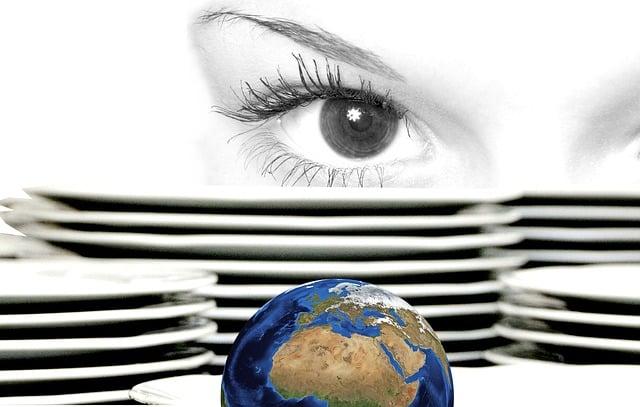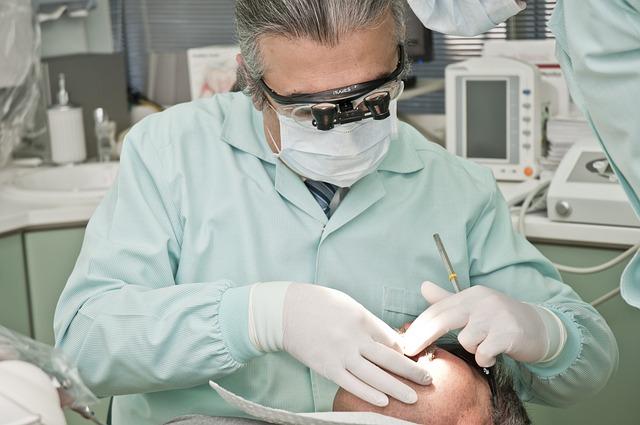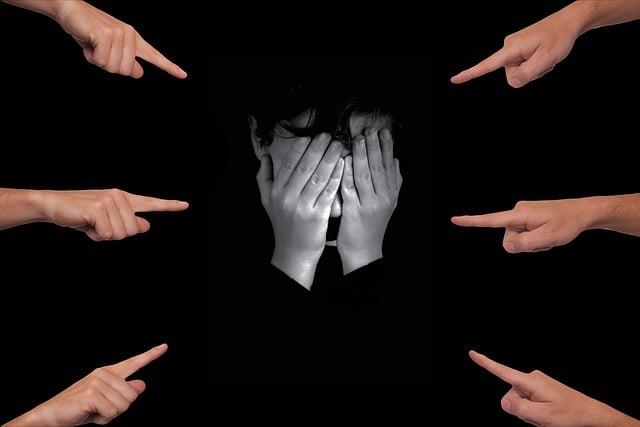Welcome to “Unlock Relief: How to Treat Morning Headache Bruxism Effectively!” Discover expert tips and strategies to combat morning headaches caused by bruxism, guaranteeing you a pain-free start to your day!
1. Understanding Morning Headache Bruxism: Causes and Symptoms
Morning headache bruxism is a common condition characterized by waking up with a headache and aching jaw muscles. It occurs when a person grinds or clenches their teeth during sleep. Understanding the causes and symptoms of morning headache bruxism is crucial for effective management.
Causes:
- Stress and anxiety – Emotional or psychological factors can contribute to teeth grinding at night.
- Malocclusion – When the teeth do not align properly, it can lead to excessive grinding.
- Medications – Some medications, such as antidepressants or stimulants, can cause bruxism as a side effect.
Symptoms:
- Headache upon waking – The persistent headache upon waking is a prominent symptom that differentiates morning headache bruxism from other types of headaches.
- Facial muscle pain – Aching and tension in the jaw muscles can be felt throughout the day.
- Excessive tooth wear – Bruxism can cause wear and tear on the teeth, leading to sensitivity and other dental issues.
By identifying the underlying causes and recognizing the symptoms, individuals experiencing morning headache bruxism can seek appropriate treatment options and find relief from the discomfort and pain associated with this condition.
2. The Effects of Morning Headache Bruxism on Overall Well-being
Morning headache bruxism, also known as teeth grinding, can have significant effects on overall well-being. This common condition occurs when an individual clenches or grinds their teeth while they sleep, often without even realizing it. While occasional bruxism is harmless, frequent episodes can lead to a range of physical and emotional issues.
The effects of morning headache bruxism include:
- Pain and discomfort: Individuals who suffer from this condition often wake up with headaches and jaw pain. The constant clenching and grinding put excessive pressure on the jaw and surrounding muscles, causing tension and discomfort.
- Tooth damage: The persistent grinding can wear down tooth enamel, leading to chipped teeth, cracks, and even tooth sensitivity. Over time, this can require dental intervention and may result in costly treatments.
- Poor sleep quality: Bruxism episodes can disrupt sleep patterns, causing frequent awakenings throughout the night. This can lead to chronic fatigue, daytime sleepiness, and reduced overall energy levels.
- Stress and anxiety: The presence of morning headache bruxism often indicates heightened stress levels. The condition can become a vicious cycle, as the grinding contributes to stress, which in turn exacerbates the bruxism. It is crucial to address the underlying causes of stress to alleviate this issue.
Managing morning headache bruxism is essential to improve overall well-being. Several treatment options, including orthodontic devices, stress reduction techniques, and relaxation exercises, can significantly alleviate the symptoms and prevent further complications. Seeking professional advice from a dentist or healthcare provider is recommended to ensure an accurate diagnosis and tailored treatment plan.
3. Identifying Triggers: What Leads to Morning Headache Bruxism?
Morning headache bruxism can be triggered by several factors that contribute to teeth grinding during sleep. Identifying these triggers is essential in understanding and effectively managing the condition. Here are some common culprits:
- Stress: One of the leading causes of bruxism, stress can manifest itself through clenching or grinding of teeth, especially during sleep. Identifying and managing stressors can significantly reduce morning headache bruxism.
- Anxiety and/or depression: Similar to stress, anxiety and depression can contribute to teeth grinding. Seeking appropriate treatment for these conditions can help alleviate bruxism symptoms.
- Malocclusion or misaligned bite: When teeth do not align properly, it can lead to excessive grinding and clenching during sleep. Orthodontic treatments or the use of mouthguards can help correct this issue.
- Medications: Certain medications, such as antidepressants and antipsychotics, may have side effects that include bruxism. Consulting with a healthcare professional can help determine if medication adjustments are necessary.
By identifying and addressing the triggers that lead to morning headache bruxism, individuals can take proactive steps in managing and reducing teeth grinding during sleep. Seeking professional advice from a dentist or healthcare provider is crucial for an accurate diagnosis and personalized treatment plan.
4. The Negative Impact of Morning Headache Bruxism on Dental Health
Morning headache bruxism, also known as teeth grinding, can have a detrimental effect on dental health. This condition occurs when a person clenches or grinds their teeth while asleep, often without being aware of it. Unfortunately, morning headache bruxism may lead to various negative consequences for dental health that should not be ignored.
includes:
- 1. Tooth damage: The constant grinding and clenching of teeth can cause wear and tear on the tooth enamel, leading to chipped, cracked, or fractured teeth. This may necessitate dental restorations such as fillings, crowns, or even tooth extraction in severe cases.
- 2. Jaw pain and temporomandibular joint (TMJ) issues: Bruxism can place excessive pressure on the jaw joint and surrounding muscles, resulting in jaw pain, headaches, and even earaches. Over time, this may contribute to the development of TMJ disorders, which can cause discomfort and difficulty in jaw movement.
- 3. Gum damage: Constant grinding can also affect the gum tissue, causing recession and exposing the sensitive tooth roots. This can lead to tooth sensitivity, an increased risk of tooth decay, and potential gum disease if left untreated.
If you suspect you have morning headache bruxism, it is crucial to seek professional dental advice. Dentists can provide a thorough examination, diagnose the condition, and recommend appropriate treatments to alleviate the negative impact on dental health.
5. Exploring Effective Treatment Options for Morning Headache Bruxism
In order to address morning headache bruxism effectively, it is important to explore different treatment options. Here are some effective approaches that can help alleviate the symptoms and provide relief:
1. Lifestyle modifications:
– Reduce stress levels through relaxation techniques such as deep breathing exercises or yoga.
– Avoid consuming stimulating substances like caffeine or alcohol, especially close to bedtime.
– Maintain a regular sleep schedule and prioritize getting enough restful sleep each night.
2. Oral appliances:
– Consult with a dentist specialized in sleep disorders to explore the use of oral appliances.
– A mouth guard or splint can be custom-fitted to minimize the effects of teeth grinding and reduce morning headaches.
– These appliances work by creating a barrier between the upper and lower teeth, preventing them from grinding against each other during sleep.
3. Behavior modification techniques:
– Cognitive Behavioral Therapy (CBT) can be beneficial in managing morning headache bruxism.
– CBT helps identify triggers and develop coping mechanisms to prevent teeth grinding.
– Techniques such as relaxation training and stress management can be incorporated into therapy sessions to address the root causes of bruxism.
By implementing these treatment options, individuals suffering from morning headache bruxism can significantly improve their quality of life and minimize the discomfort associated with this condition. It is essential to consult with a healthcare professional for a proper diagnosis and tailored treatment plan to ensure the best outcomes.
6. Unmasking the Role of Stress in Morning Headache Bruxism
The role of stress in morning headache bruxism is often underestimated and overlooked. However, understanding its impact on this condition is crucial for effective management and treatment. Here are some key points to consider:
1. Stress as a triggering factor: Stress has been widely recognized as a significant trigger for morning headache bruxism. High levels of stress can contribute to an increase in muscle tension, leading to clenching and grinding of the teeth during sleep. Identifying and addressing sources of stress is essential in managing and alleviating symptoms.
2. The vicious cycle: Morning headache bruxism can create a vicious cycle of stress and bruxism, where the condition itself can cause additional stress, perpetuating the problem. Recognizing this cycle is crucial for breaking it and finding effective solutions.
3. Coping strategies: Managing stress is key to reducing morning headache bruxism. Incorporating stress-reducing techniques such as relaxation exercises, meditation, deep breathing, and regular exercise can help alleviate symptoms. Additionally, seeking support from a healthcare professional or therapist can provide guidance and support in developing effective coping strategies.
7. Creating an Effective Nighttime Routine to Curb Morning Headache Bruxism
Bruxism, or the habit of grinding or clenching your teeth, can often lead to morning headaches and jaw pain. Fortunately, establishing a nighttime routine can help alleviate these symptoms and promote a more peaceful sleep. Here are some key steps to incorporate into your routine:
- Manage Stress: Stress is a major contributing factor to bruxism. Implement relaxation techniques such as deep breathing exercises or meditation before bed to help reduce stress levels.
- Avoid Stimulants: Consumption of caffeine and nicotine close to bedtime can exacerbate bruxism symptoms. Try to limit your intake of these substances, especially in the evening hours.
- Establish a Sleep-Friendly Environment: Create a calm and comfortable atmosphere in your bedroom. Use earplugs or a white noise machine to block out any disruptive sounds, and make sure your mattress and pillows provide adequate support for your head and neck.
Practice Jaw and Facial Relaxation Exercises: Engage in gentle jaw stretches and facial massages before going to bed. This can help relax the muscles involved in bruxism and reduce tension.
Remember, it may take time for your body to adjust to the new routine. Be patient and consistent with these strategies to effectively curb morning headache bruxism and improve your overall sleep quality.
8. How Dental Devices Can Help Alleviate Morning Headache Bruxism
Dental devices offer a practical solution for those who suffer from morning headaches caused by bruxism, or teeth grinding. These devices are specifically designed to alleviate the symptoms and provide much-needed relief. By wearing a dental device during sleep, you can effectively prevent the damaging effects of teeth grinding on your oral health and minimize the occurrence of morning headaches.
One commonly used dental device is a night guard. This custom-fitted appliance is made of a soft material and is worn over the teeth. It acts as a protective barrier, absorbing the excessive force caused by grinding and clenching. Moreover, a night guard creates a physical separation between your upper and lower teeth, reducing the friction and pressure that contribute to morning headaches.
Another type of dental device that can help alleviate morning headaches is a splint or an oral appliance. These devices are designed to address specific issues related to bruxism and provide long-term relief. A splint is typically made from a rigid material and is custom-made to fit your teeth. It helps to stabilize your jaw position during sleep, thereby reducing muscle tension and preventing headaches. Additionally, some oral appliances can also aid in the repositioning of the jaw, promoting optimal alignment and minimizing the likelihood of morning headaches.
Using a dental device is an effective and non-invasive approach to alleviate morning headache bruxism. With the help of a night guard or splint, you can protect your teeth and jaw from the damaging effects of grinding while minimizing the occurrence of headaches. Consult with your dentist to determine the most suitable dental device for your specific needs and start enjoying a peaceful, headache-free morning.
9. Seeking Professional Help: Dentists and Specialists for Morning Headache Bruxism
Dentists and specialists play a crucial role in managing morning headache bruxism, providing effective solutions to alleviate the symptoms and improve overall oral health. Here are some reasons why seeking professional help is essential:
1. Diagnosis: Dentists and specialists are trained to accurately diagnose the underlying cause of morning headaches and bruxism. Through a comprehensive examination, they can identify any dental issues, such as misaligned teeth, dental infections, or temporomandibular joint (TMJ) disorders, which can contribute to the condition.
2. Customized Treatment Plans: Once the cause is determined, dentists can tailor treatment plans to address the specific needs of each individual. These can include the use of mouth guards or splints to protect teeth from grinding and clenching during sleep, orthodontic interventions to correct misaligned teeth, and TMJ therapy to alleviate any associated discomfort.
3. Expert Advice and Education: Dentists provide valuable advice and education on how to manage and prevent morning headaches and bruxism. They can suggest lifestyle modifications, stress reduction techniques, and recommend the appropriate maintenance routine for long-term oral health. Moreover, they can educate patients on the potential complications of untreated bruxism, such as tooth damage, gum problems, and chronic headaches.
By consulting dentists and specialists, individuals experiencing morning headache bruxism can receive the professional expertise needed to address the root cause, manage symptoms, and improve quality of life. Don’t let morning headaches persist – take the first step towards a pain-free morning by seeking the help of these qualified professionals.
10. Lifestyle Changes for Long-term Relief from Morning Headache Bruxism
If you constantly wake up with headaches due to bruxism, making a few lifestyle changes can provide you with long-term relief. By adopting these practices, you can address the underlying causes of morning headache bruxism and improve your overall quality of sleep. Here are some effective lifestyle changes to consider:
- Stress management: Stress is a common trigger for bruxism, so finding healthy ways to manage it can significantly reduce morning headaches. Consider trying relaxation techniques such as deep breathing exercises, meditation, or engaging in activities you enjoy.
- Sleep hygiene: Establishing a regular sleep routine can contribute to better sleep quality and decreased bruxism symptoms. Aim to go to bed and wake up at consistent times, create a comfortable sleep environment, and avoid stimulating activities or electronic devices before bedtime.
- Avoiding stimulants: Certain substances like caffeine, alcohol, and tobacco can worsen bruxism symptoms. Limit your intake of these substances, especially close to bedtime, to help prevent morning headaches and reduce overall bruxism-related discomfort.
- Muscle relaxation techniques: Practice muscle relaxation exercises before bedtime to ease tension in the jaw. Simple techniques such as gently massaging the jaw muscles or applying warm compresses can help relax the jaw muscles and alleviate morning headache bruxism.
Remember, adopting these lifestyle changes may not provide immediate relief, but with consistent practice, they can significantly reduce the frequency and intensity of morning headache bruxism. Consult a healthcare professional for further guidance on managing your specific bruxism symptoms.
In conclusion, morning headache bruxism can be effectively treated by implementing simple yet effective techniques such as stress management, jaw exercises, and lifestyle adjustments. By taking proactive steps towards addressing this issue, individuals can unlock relief and improve their quality of life. Don’t let morning headaches hold you back – take control and find relief today!





